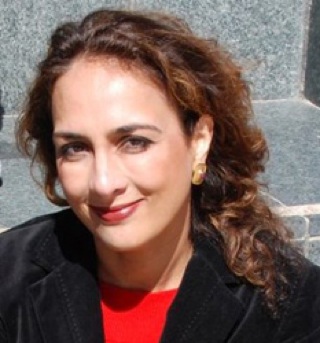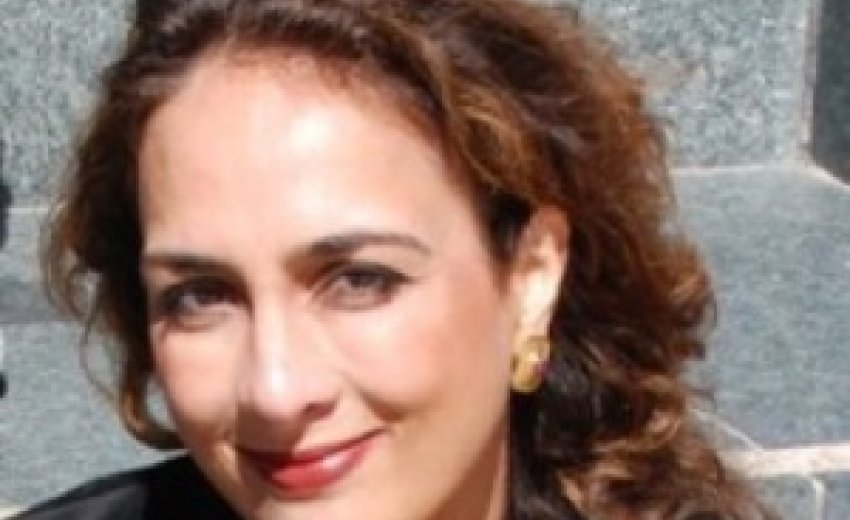Listen: 7:36 min
(Download Audio)
 San Francisco's Republican Party has a new chair, and it's not your average Republican. Let's take some demographical statistics of GOP supporters. According to Gallup, they're mostly white, they're mostly men and they mostly "attend church weekly." Harmeet Dhillon is none of the above. She's an Indian-American woman who's Sikh.
San Francisco's Republican Party has a new chair, and it's not your average Republican. Let's take some demographical statistics of GOP supporters. According to Gallup, they're mostly white, they're mostly men and they mostly "attend church weekly." Harmeet Dhillon is none of the above. She's an Indian-American woman who's Sikh.
She's a civil rights lawyer who represents minorities in discrimination cases. And she used to be on the board of the ACLU - a body that often takes an opposing stance to the Republicans. Maybe it's no surprise that in the politically bluest of the blue San Francisco, the head of the GOP seems a little different from many of her fellow Republicans. KALW's Hana Baba sat down with Harmeet Dhillon.
* * *
HANA BABA: Tell me a little bit about your growing up, briefly. You were born in India, you came to the United States - was your family into politics? Did you have a Republican upbringing at home? What was your childhood like?
HARMEET DHILLON: I had Republican upbringing. My parents left India for many reasons. My father is a physician. I grew up in a very small town, rural North Carolina because that's where a doctor was needed, an orthopedic surgeon was needed, in the South. And it was difficult, you know. We lived in the heart of Ku Klux Klan country. There were literally like, the Klan was like the Rotary Club or some other socially acceptable organization when I was growing up. So it was challenging. My father wears a turban, my brother wears a turban, and we experienced quite a bit of discrimination. But they didn't really let it bother them and that's because of our inherent values as Sikhs. We are a minority in India and are very proud of who we are and what we believe.
My parents registered as Republicans when they became American citizens. They felt the Republican Party better reflected their values of lower taxes, smaller government, and conservative social values that they have. I was definitely exposed to the idea that a citizen should be actively involved and engaged in giving back to their community, so that was my upbringing.
BABA: Do you feel that the GOP in San Francisco has to by definition be unique in progressive, liberal San Francisco?
DHILLON: I don't think that we consciously try to be any different because we're in San Francisco, or try to mold our values to the liberal values that surround us. I think to the contrary, the type of people who are attracted to San Francisco and the type of people who enjoy the culture and the beauty - they tend to be somewhat more moderate, I think, on social issues than conservatives may be from maybe the heartland of the United States or places like Orange County. That being said, our values on economic issues that unite Republicans across the board, even within the "big tent," are absolutely the same as Republicans in Orange County, Republicans in Texas, Republicans in rural North Carolina, where I grew up.
BABA: So you see the difference might be in social issues, then?
DHILLON: And it might be for some people. Like I said, we have lots of folks who are active in the Tea Party. We have a lot of folks who marched in the Walk for Life recently in my party. We have folks who are adamantly opposed to gay marriage. So we definitely have our fair share of people who are conservative socially as well.
But I would say that what distinguishes our party here in San Francisco from say some of the more conservative areas of the state - Placer County, Kern County - is probably more urban values.
BABA: So you're a civil rights attorney, and we've seen the recent brutal attacks on Sikhs. You've defended members of the Sikh community in workplace discrimination cases as well. Here's a question: the GOP has been criticized in general for being anti-immigrant or at least not immigrant-friendly, by Democrats and by other people. So how do you feel the GOP represents you?
DHILLON: Well, the GOP Party of San Francisco unanimously elected me, an orthodox Sikh with a funny name, to be its chairwoman. So, as far as I'm concerned, it's never been an issue here in my rise through the ranks of the party. To the contrary, I'd say that members of my party have actively reached out and encouraged me to run for leadership positions. I'm the chairman of outreach for the California Republican Party statewide. The party asked me to run for the State Assembly two years ago. So I feel like I've been offered a number of opportunities based on my merits.
BABA: So you think that might be a misconception,that people might have of the GOP being kind of anti-immigrant or anti-immigration?
DHILLON: I think it's a stereotype. I think that there are a lot of Democrats that are anti-immigrant. Let me give you an example: one of my civil rights lawsuits right now, opposing counsel, is Kamala Harris. Kamala Harris the Attorney General of California is defending the state against institutionalized discrimination against Sikhs.
BABA: How so?
DHILLON: The state of California refuses to hire Sikhs wearing turbans and beards as prison guards in its system. I won a trial two-and-a-half years ago against the state on that, and the state continues to ignore the court order. So I've sued the state on behalf of my client, a gentleman who wears a beard who wants to be a prison guard. And Kamala Harris's office has taken the shocking position that the state does not need to accommodate people wearing beards in those jobs. And I find that offensive.
There was a press conference on this in January where the ACLU and 35 other organizations around the United States stood next to me, a conservative Republican, to ask the attorney general of California to obey the law.
BABA: I went to your website and it says, "The core Republican values of the San Francisco Republican Party are: individual liberty, responsibility and accountability, private property rights, free enterprise, law and order, public health and safety, leaner, efficient government, and fiscal responsibility." Let's just take that one, "leaner, efficient government" - with all the budget cuts in the city and the school district, when you say leaner, where should the money come from? How leaner can it be at this point, do you think?
DHILLON: My understanding is that San Francisco has about four times the number of public sector employees per capita compared to San Jose, a bigger and much larger geographical city than we are. So I think that we have a lot of fat in our city government, I mean our municipal government. The salaries are higher than the private sector salaries in our city. Our pensions are out of control, and a lot of our Democrat, liberal members of the Board of Supervisors agree with that. Jeff Adachi, our public defender, agrees with that. So I think that pension reform is the number one issue that fiscally affects our city going forward.
Education - I would double the salaries of actual teachers and cut a lot of the administrators. That's what I would do with education. I think that public school education, which I am a product of, is very important. But I think our schools today spend a lot of time on issues other than "ABC"s and really need to focus back on those.
BABA: So you'd kind of redirect the money?
DHILLON: Absolutely. I wouldn't cut education funds. I would cut a lot of administrative fat. If I were king for a day, I would eliminate the teachers' union and have merit-based educational hiring.
BABA: Why would you eliminate the teachers' union?
DHILLON: Because they lobby for a lot of administrative fat in their system. That's not what I pay my taxes for.
This article originally appeared on KALWNews.org
